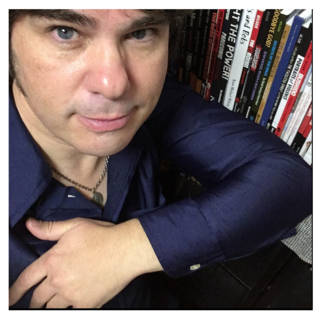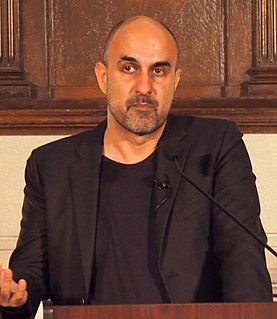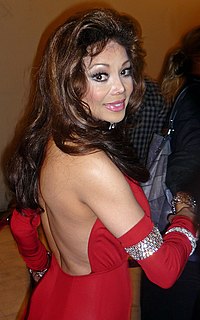A Quote by Octavia E. Butler
I talked to members of my family, and did some personal research that didn't really have anything to do with the time and place I was writing about, but that gave me a feeling of the experience of being black in a time and place where it was very difficult to be black.
Related Quotes
What I think is important about essayists, about the essay as opposed to a lot of personal writing is that the material has to be presented in a processed way. I'm just not interested in writing, "Hey, this is what happened to me today." You get to a place that has very little to do with your personal experience and talks about some larger idea or something in the culture. I don't think you can get to that unless you have had a lot of time to gestate and maybe if I was taking a lot of notes while stuff was going on, I wouldn't be able to get to that place as easily.
I felt like it was a courageous show [Black-ish] from the beginning. We are a black family - we're not a family that happens to be black. But the show is not even about us being black. The show is about us being a family. That is groundbreaking - on TV, the black characters either happen to be black or they're the "black character," where everything they say is about being black. I think that's the genius.
There's no reason why you can't say "August Wilson, playwright" even though all of my work, every single play, is about black Americans, about black American culture, about the black experience in America. I write about the black experience of men, or I write about black folks. That's who I am. In the same manner that Chekhov wrote about the Russians, I write about blacks. I couldn't do anything else. I wouldn't do anything else.
Obviously, I'm not not black. But this is one thing I do know after years and years of working with a lot of black players and black commentators on many networks: That if you go to the place of you're telling a black man, or a black woman, that 'You should know your place and stay in it,' when you get to there, them's fighting words.
One of the facets of growing up the way I did, I never had the experience of being solely in the black community. Even my family, my mother is what they call Creole, so she's part French, part black, and grew up in Louisiana. It's a very specific kind of blackness that is different than what is traditionally thought of as the black community and black culture. So, I never felt a part of whatever that was.
I was born in Jackson, Mississippi, in 1969, in a time and place where no one was saying, Look how far weve come, because we hadnt come very far, to say the least. Although Jacksons population was half white and half black, I didnt have a single black friend or a black neighbor or even a black person in my school.
I was born in Jackson, Mississippi, in 1969, in a time and place where no one was saying, 'Look how far we've come,' because we hadn't come very far, to say the least. Although Jackson's population was half white and half black, I didn't have a single black friend or a black neighbor or even a black person in my school.
Maybe in writing about and through trauma it was therapeutic in a way, but it didn't feel like it at the time. I was in a very dark place, in lots of foreign cities, far from New York. A lot of personal trials and tribulations took over my life in those years. It might be some time before I see what therapeutic function this book did serve. But for now, it's not even easy to read from it.




































